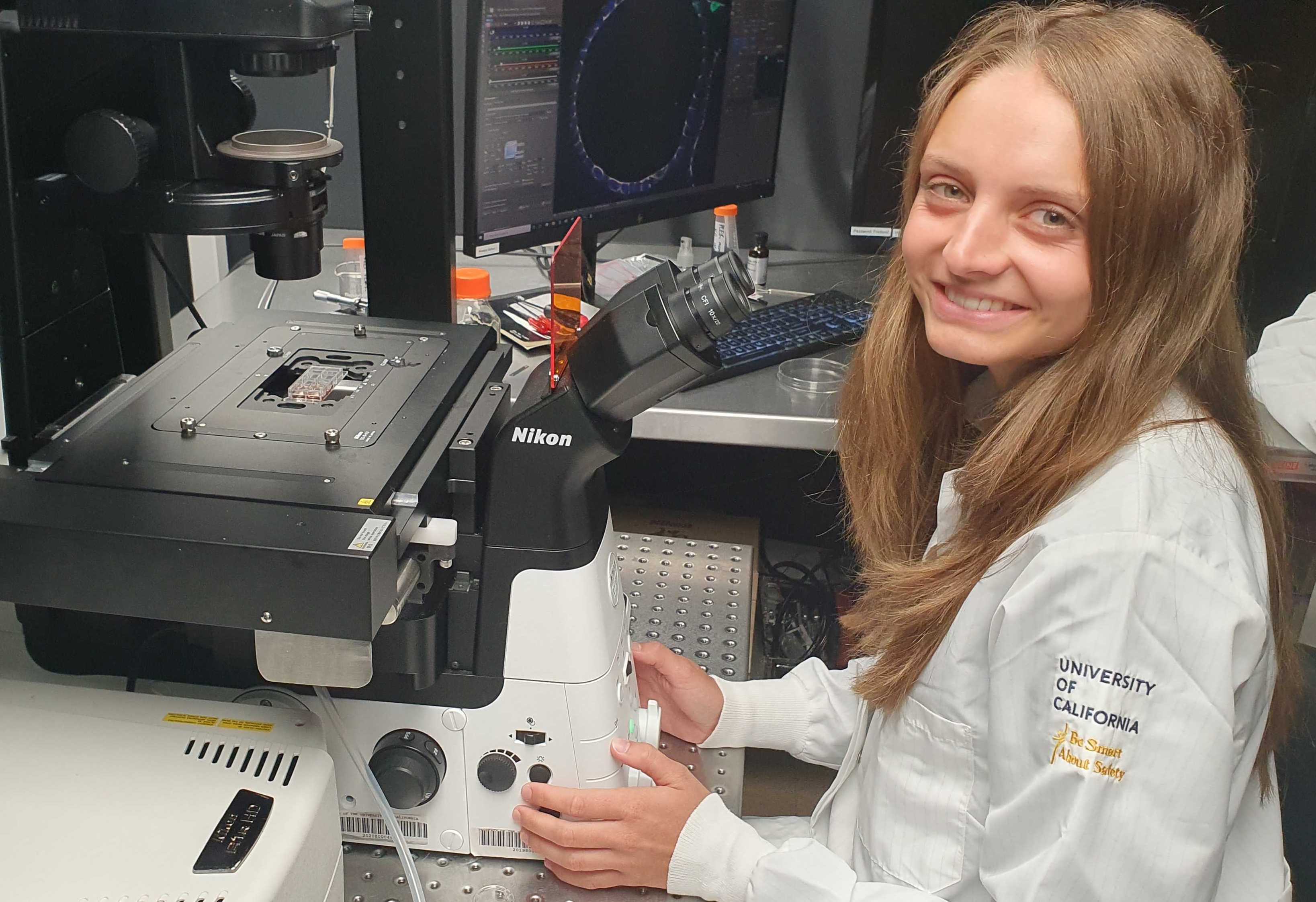
Pancreatic ductal adenocarcinoma (PDAC) carries the lowest survival rate of all major organ cancers and is the third leading cause of cancer mortality in the United States. It has been shown that pancreas tissue becomes fibrotic during disease progression due to enrichment of Collagen-type 1, which leads to tissue stiffening. However, it is unclear how this change in the confinement of the microenvironment alters pancreatic cancer cell behavior and proliferation. We hypothesize that cancer cells respond to environmental spatial confinement by proliferating more frequently. To investigate the contribution of microenvironmental confinement on PDAC, we are using pancreas organoids derived from healthy and PDAC duct tissue. These organoids maintain the main functional and structural properties of the pancreas duct network. To test our hypothesis, we study the behavior of healthy and PDAC organoids in unconfined and highly spatial confined microenvironments. To change the confinement of the microenvironment we used a microgel based 3D culture environment adapted to support long-term organoid culture. The advantage of using microgel is that we can control the mechanical properties by changing the polymeric content. We discovered that tumor cells proliferate more frequently if they are in a more confined environment, a response we do not see in healthy organoid lines. These results provide, for the first time, proof that the mechanical microenvironment plays an important role in enhancing tumor proliferation